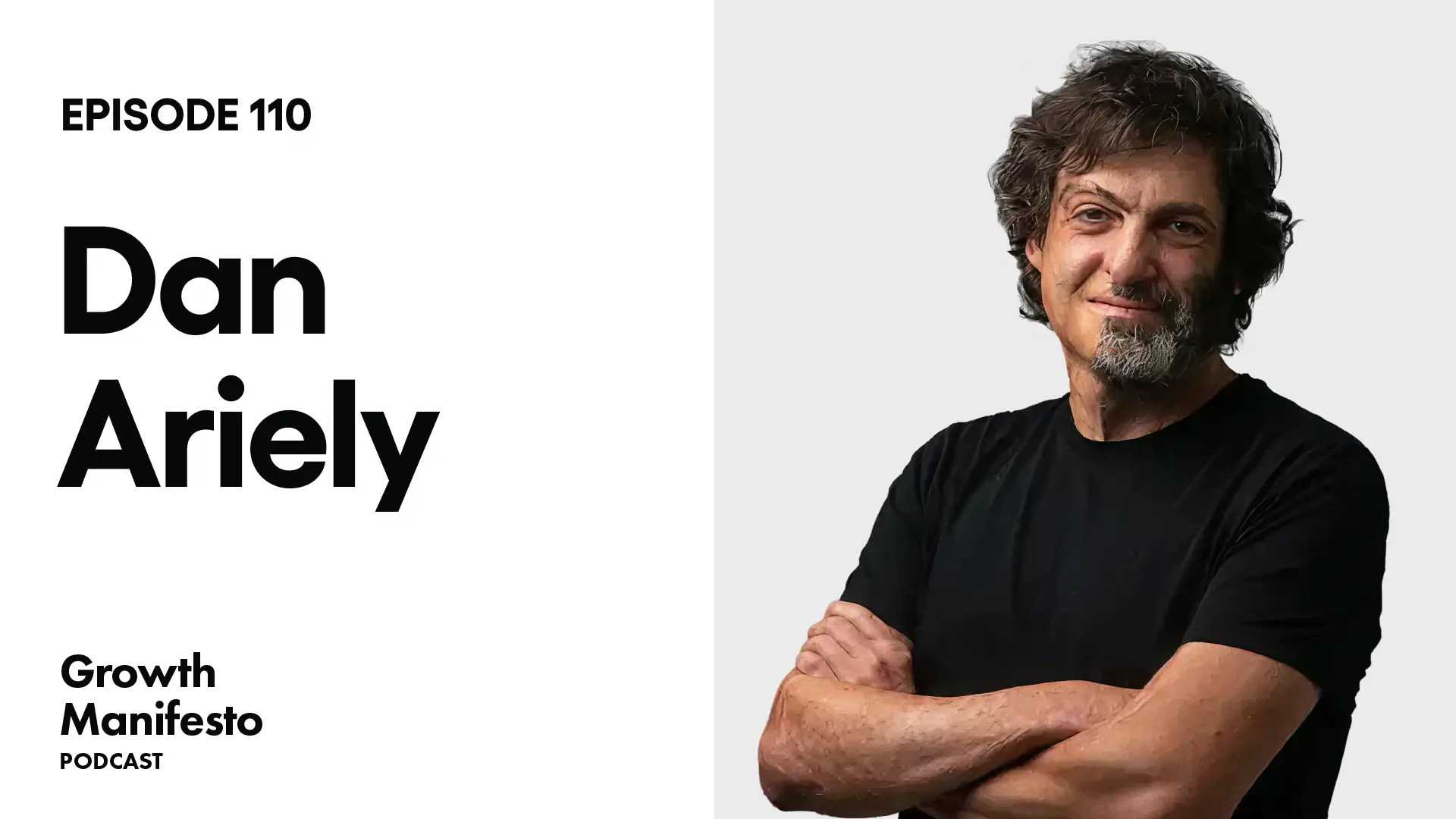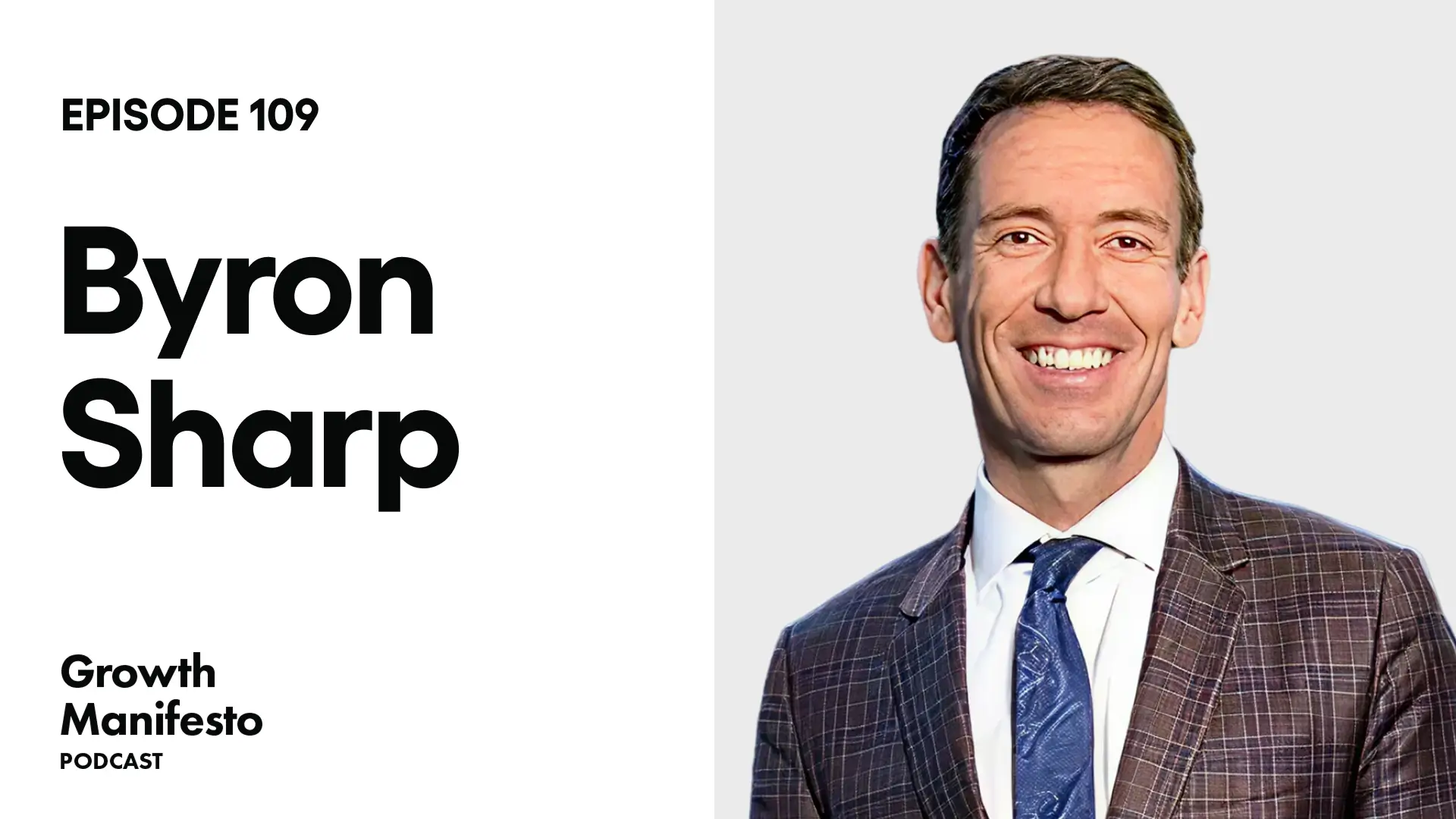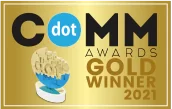An insider’s look into the legal cannabis industry
This episode is with Steve DeAngelo – cannabis entrepreneur, activist, author, and on-screen personality. He’s the co-founder of Harborside, one of the first six dispensaries licensed in the US and now listed on the Canadian stock exchange; Steep Hill Laboratory, the first dedicated cannabis lab; the Arc View Group, the first cannabis investment firm; and the National Cannabis Industry Association, the industry’s first trade association. And in 2015 he was dubbed “the father of the legal cannabis industry”. In this episode we talk about the legal cannabis industry – how it started, the challenges of growing a business in this industry, and where it’s going next.
LINKS
- Seven’s Website
- Harborside, Inc.
- Steep Hill
- Arcview Group
- The Cannabis Manifesto
- The Cannabis Renaissance
- Last Prisoner Project
- Radio Free Cannabis Podcast
- Steve DeAngelo on Rolling Stone
—
You’re listening to The Growth Manifesto Podcast, a Zoom video series brought to you by Webprofits – a digital growth consultancy that helps global and national businesses attract, acquire, and retain customers through digital marketing.
Hosted by Alex Cleanthous.
- YouTube: https://www.youtube.com/c/GrowthManifestoPodcast
- Instagram: https://www.instagram.com/webprofits/
- LinkedIn: https://www.linkedin.com/company/web-profits/
- Facebook: https://www.facebook.com/Webprofits/
- Twitter: https://twitter.com/webprofits
- Agency: https://www.webprofits.io
SHOW NOTES
- 00:01:03 Steven DeAngelo’s introduction to the Growth Manifesto Podcast
- 00:02:27 What are some of the biggest misconceptions around cannabis?
- 00:03:48 Why was cannabis made illegal?
- 00:05:40 Why is cannabis being legalized now?
- 00:07:53 What was the catalyst for cannabis to go from mainly medical purposes to now being sold in retail?
- 00:11:02 What was it like starting a cannabis-related business at the beginning when people were only starting to open up to it being legalized?
- 00:13:08 How did you promote the business at the beginning?
- 00:14:30 What was the process of getting your business publicly listed at the Canadian Stock Exchange?
- 00:17:30 Steven talks about the overtaxation and overregulation in California that nearly crippled the cannabis industry
- 00:19:47 How do some cannabis companies get such a big valuation on the public markets?
- 00:21:04 How the legalization of the cannabis industry is more favorable to bigger companies rather than the general entrepreneur
- 00:23:14 How Steven persisted through seemingly insurmountable challenges in the past 2 to 3 decades in the cannabis industry
- 00:24:31 Besides the manufacturing and the dispensaries, were there other types of cannabis-related businesses that were successful when it became for-profit in 2019?
- 00:28:15 Is it true that it’s hard to break into the cannabis industry right now?
- 00:30:39 What is the estimated size of the cannabis market on both the legal and illegal side?
- 00:33:09 What do you think it takes for cannabis to become legal in Australia?
- 00:35:35 What would you advise entrepreneurs in Australia preparing for the legal reform with regards to cannabis
- 00:37:06 Where Steven sees the cannabis industry going next
- 00:39:15 What’s the message that you’re trying to get out there about cannabis?
- 00:40:40 Steven tells us about “The Cannabis Manifesto” and “The Cannabis Renaissance”
- 00:43:48 Steven talks about the “Last Prisoner Project” and how he’s approaching this challenge
- 00:47:37 How do people support the “Last Prisoner Project”?
TRANSCRIPT
Steven DeAngelo:
… I just don’t quit.
Alex Cleanthous:
You just don’t quit?
Steven DeAngelo:
I just don’t quit. I mean, there’s one sure way to lose and that’s stopping. And I was just never willing to do that. And how? I don’t know. I mean, there were times it was very, very difficult, Alex. In the 1980s and the 1990s, these commercials would come on television with a fried egg on a griddle and talking about how this is your brain on drugs. And they were very much including cannabis in there. And we are really made to feel like we were pariahs. There were times when I didn’t have a clue whether we were ever going to be successful, but I knew the truth about this plant. I knew the potential about this plant, I knew that this plant has the ability to save this planet. And I wasn’t willing to give up that possibility, that struggle. It was something that I was called to do, and I felt like I had to execute on that.
Alex Cleanthous:
Today. We’re talking with Steven DeAngelo, cannabis entrepreneur, activist, author, and on-screen personality. He’s the co-founder of Harborside, which is one of the first six dispensaries licensed in the US and now listed on the Canadian Stock Exchange. Steep Hill Laboratory, the first dedicated lab, the Arcview Group, the first cannabis investment firm, and the national cannabis industry’s first trade association. And in 2015, he was dubbed the father of the legal cannabis industry. Today, we’ll be talking about the legal cannabis industry. How it started, the challenges to grow a business within this industry, and where it’s going next. And just quickly before we get started, make sure to go ahead and hit that subscribe button so that you get the latest episodes as soon as they’re released. Now let’s get into it, welcome Steven.
Steven DeAngelo:
Thank you so much for having me, Alex. Great to be here.
Alex Cleanthous:
Yeah, I’m very excited about this topic because within Australia, it’s not yet at the level that it is in the US or Canada. And so it’s not yet selling within the dispensaries to people on the street. So this conversation is to really understand how change happens and how to do business in this kind of environment, which is an interesting one. But let’s start with the misconceptions, right? Because I think that there are quite a lot of misconceptions around the cannabis plant because of how it’s portrayed in the media. So what are some of the biggest misconceptions around?
Steven DeAngelo:
Well, you could wrap them all into a bundle by saying that cannabis is a harmful substance, which causes psychosis, which leads people into dependency. It makes them more likely to become addicted to harder drugs, and will basically ruin not only their lives, but the lives of everybody around them. And it’s just not true. Cannabis now is one of the most studied plants on the planet. If you go to the databases, you’ll find something close to 30,000 different published scientific reports on cannabis. And the vast majority of them demonstrate beyond any reasonable doubt that cannabis is actually a very safe and efficacious therapeutic remedy for many, many, many different human ailments. It is also, and this is often not talked about enough, a remarkable raw material. The way I like to describe it is cannabis not only wakes up our spirits and brings us closer to nature, but gives us the raw material we need to build a new life affirming economy. So that’s just a little bit of what I think is the real truth of cannabis.
Alex Cleanthous:
And so why was it made illegal, and now why is it becoming legalized again?
Steven DeAngelo:
So cannabis was made illegal in the United States mainly because of the way that it came to the country. Cannabis came to the US in the hands of Black people and Brown people. There were two vectors, one was across the Southwestern border with Mexico. This happened right around the time of the Mexican Revolution around 1910 when you had hundreds of thousands of Mexican refugees who were coming into the United States, and they were fleeing warfare. So they brought with them their folk medicine, cannabis had been incorporated into the folk curandero system of medicine in Mexico for hundreds of years. Like today, a lot of those brown-skinned refugees were not welcomed by a lot of White Americans. There was a lot of racism. It was actually much worse than it is even today.
And the first laws against cannabis in the United States date from that time, 1911, 1912, 1913. And they were state laws; California, Texas, Arizona, states that bordered Mexico. And then later on, you saw the same thing happen with Black people. Afro-Caribbean sailors brought cannabis with them into ports like New Orleans, where it played a very important role in the development of jazz. And then spread throughout the American mainstream largely along the same routes that jazz music spread. And in the 1930s, there was a campaign to make cannabis illegal at the federal level, which was driven by a guy named Harry Anslinger. Anslinger’s real agenda was racism, but he dressed it up in the jacket of cannabis.
Alex Cleanthous:
And why is it becoming legalized again now?
Steven DeAngelo:
It’s becoming legalized again now, because the real truth about cannabis is coming out. So the breakthrough in the cannabis reform movement, which has basically been going on almost ever since cannabis was made illegal, many people don’t realize it, but in 1944, the famous mayor of New York City Fiorello La Guardia organized a commission on cannabis. And that commission said all of the same things that we know to be true about cannabis today, that it’s not addictive, that it does not cause psychosis, that it does not cause criminality. And that in fact, there’s a lot of good science to demonstrate that it’s medically effective. It really took until the 1990s for change to happen. And it happened in San Francisco during the AIDS crisis, when a wonderful guy named Dennis Peron, an old friend of mine who was an underground cannabis dealer started noticing that those… Again, Dennis was a gay man, so he was deep into the gay community.
And the gay community of San Francisco at that time was just being devastated by AIDS. Thousands and thousands of people were dying. There’s no remedy, nobody really knows what’s going on. But Dennis is a dealer and he deals to the gay community, and starts noticing that the people who have AIDS who are using cannabis are living longer and having a higher quality of life than people who are not consuming cannabis. So he immediately starts giving away as much cannabis as he can. He goes to all of the cannabis growers that he knows, and explains that he wants to give away the cannabis to AIDS patients so that they can live. And he starts this just underground distribution. And it caught on, it became a big thing in San Francisco. Eventually the cops realized what Dennis was doing. They came and they arrested him. And Dennis’s response was to go public and to get an initiative placed on the ballot in San Francisco in 1991 to legalize medical cannabis. And that’s really what kicked us off into the modern era of cannabis reform.
Alex Cleanthous:
And the medical side of cannabis has been around for a while, but the retail side where you can just walk up the street and purchase it, that only happened just recently. What was the catalyst for that transition? Because forever it was about, it’s for medical purposes, but now it’s shifted where you can just walk into the shop and get it. So what changed?
Steven DeAngelo:
Well, I’ll talk about the State of California. And of course in the United States, we have a situation where federal law still does not recognize any medical use or any legitimate use for cannabis. Where a majority of the states under their state laws do recognize that cannabis is useful either for medical purposes or for what we call adult use, which means any purpose whatsoever. Adults can just make up their own mind about whether to use it or not-
Alex Cleanthous:
Like chocolate.
Steven DeAngelo:
Yeah. So in California, from 1996 until 2018, we had a loosely regulated non-profit medical cannabis system that basically envisioned groups of growers coming together and pooling their cannabis into dispensaries and to collectives, and then providing that to the patients. That’s how I built Harborside, was on that legal structure. But there’s always been a desire to have completely legal cannabis. There were a lot of people who wanted to consume cannabis but didn’t see themselves as being ill, didn’t see themselves as being sick, and they didn’t feel comfortable going to their doctors and lying and saying that they were. Or in many cases even if they were using cannabis for therapeutic purposes, because of stigma, they didn’t feel comfortable talking to their healthcare providers. So there’s always been a desire to make cannabis completely free and legal like any other consumer product is, and that’s really what was driving the movement in California.
In 2016, we passed another initiative which legalized cannabis for all purposes, not just for medical purposes. But one of the big changes was that we went from a non-profit market to a for-profit market. At roughly the same time, the Canadian stock exchanges where cannabis is legal at the federal level, opened their stock exchanges to US cannabis companies. So this really changed the scene in California, which previously was a lot of people who really came out of a hippie milieu, who had a personal relationship with the plant, who really believed in it, who were running the industry, to now more and more are seeing cannabis corporations in California that are financed by the public markets that are usually managed and operated by people who don’t have much, if any, relationship with cannabis whatsoever. And so you’ve really seen quite a dramatic change in the nature of the cannabis industry in my home state of California in the past few years.
Alex Cleanthous:
Yeah. The cannabis industry is big business now with legal sales projected to rate around 22 billion by next year. That’s if I have the stats right. Right? But that wasn’t always how it was, and so what was it like starting a business at the very beginning?
Steven DeAngelo:
Well, it was scary. When we first opened Harborside in 2006, the federal government was raiding even state licensed and legal dispensaries. And so I didn’t know whether I was going to come home at the end of my workday, or whether the federal government would raid us and I’d go to prison in handcuffs. So it was scary. And we met with a lot of resistance, even though the city of Oakland had licensed us, and we enjoyed robust support from the community and from the city government, there were individual cops who didn’t like the change. So we had this one cop who liked to park down the street from Harborside, and he would do everything he could, that he was allowed to, to harass people.
So he would pull people over, he would ask them where they had been. He would make them take all of their product that they had purchased at Harborside and put it on the hood of the car. He would photograph it, he would intimidate people. And he wasn’t technically doing anything that he wasn’t allowed to do, but he was really making life very difficult for us. And fortunately, because we did have a good relationship with the community because we were hiring from the community, because we engaged with the community, we did things like participated in gun buyback programs, I actually had a very good relationship with this officer’s superiors at the police department. And so he found himself transferred to one of the less desirable bits in Oakland, as a result of his activities. So there’s that kind of resistance that you run into. Even after you change the law, you have to fight to make sure that the law is actually really faithfully enacted.
Alex Cleanthous:
And so you have to do that side of it, but at the same time, it’s also a business. So how did you promote the business or what was your strategy there, especially with the fear and with the federal laws versus state laws. What was your strategy there just to get the message out?
Steven DeAngelo:
Well, it was difficult because one of the regulations that Oakland imposed on us in the beginning, is that we were not allowed to advertise in any way, shape or form whatsoever. And so it was really word of mouth, is what we had to go on, and news articles. So one of the reasons that I’ve become so adept to doing interviews and I’m interviewed so much is, for the first three years of our existence, I was allowed to give interviews to the news media and tell them what I was doing and describe what was happening at Harborside. I was not allowed to buy advertising to do the same thing. And so instead of putting money into advertising, I hired a really good publicist and put a lot of time and attention into telling our story to the public. So that was one of the things that we did differently at that time. Most other dispensary operators were afraid that if they gave interviews then they would be the next on the federal government hit list, and so they stayed quiet.
Alex Cleanthous:
And it went from that point to being publicly listed. So what was that journey? I mean, how did that even happen? Because that seems like from that point, it seems so far away to be on the stock market. And so what was in a highlight level, the process?
Steven DeAngelo:
Well, I mean, the basic reason that we ended up on the Canadian stock exchange is because we were very, very successful at building a cannabis business. And so within our first year, we were at $7 million a year in annual revenue. By the end of our third year, we were at $20 million of annual revenue, and we continued growing from there. And we’re over $60 million a year in revenue now. So the basic reason is that we became very good at providing the kind of cannabis to cannabis consumers that they want. There were a lot of legal changes that needed to happen along the way, and we almost didn’t make it to those legal changes. By law, until 2018, we were a non-profit organization, and so you couldn’t go public, we were non-profit.
And in 2011, four US federal attorneys in the State of California decided that they were going to close down California’s cannabis industry. I think they hoped to do that before Colorado and other states passed adult use, which was getting ready to happen in 2012. It was sort of the last stand of the prohibitionists. And they used two tactics; one, they applied tax laws to us that didn’t apply to anybody else and tried to basically tax us out of existence. Then they tried to seize the properties that we were located in. And so another reason that we became very well known was I refused to knuckle under to those attempts, and we fought them both. And eventually we won in the case of the property seizure.
So what set us up for the public markets was in 2018, California became a for-profit cannabis industry. And at the same time, the Canadian public markets basically opened up to US companies. And it was the place that made the most sense to go to get growth capital. We were expecting to see a lot of growth in California in 2018, 2019. It didn’t quite turn out that way, but the purpose of going public was to get the growth capital that we needed to stay up as the market expanded.
Alex Cleanthous:
And so why didn’t it happen in 2018 and 19?
Steven DeAngelo:
Because of the way that California went about legalizing cannabis, and let this be a cautionary tale to all of my friends in Australia. The temptation is to accept legalization on almost any terms because we’re being arrested and people are going to jail, and having their lives destroyed. Be very careful, do not give into that temptation. In California, two things happened which have really crippled the industry here. One, the industry was overtaxed. In the old system prior to 2018, the maximum tax rate was about 10%. And it was lower than that in some parts of the state. Post 2018, it’s now gone to over 40% everywhere in the state. And at the same time, the state imposed a lot of very heavy requirements for growers and manufacturers to enter from the underground market into the legal market.
And it basically costs hundreds of thousands, in some cases millions of dollars, to set yourself up for the kind of operation that you need in order to be licensed. And so two things happened, on January 1st, 2018, you had cannabis consumers coming into dispensaries where they used to pay 10% tax and they’re getting charged 40 or 45% tax. So they’re running out of the dispensaries, their hairs on fire, they’ve got sticker shock, I mean, what’s going on? And they run right out into the hands of all of the growers and manufacturers who were unable to get licensed by the state because of the over-rigorous requirements. So basically, overtaxation and overregulation have largely strangled the legalization baby in its cradle in California. I think that we’ll come out of that eventually, we are still the largest legal cannabis market in the world today, but it’s really been slowed down and the full potential of it hasn’t been achieved yet.
Alex Cleanthous:
So why are there some companies that are on the stock market, like Green Thumb Industries, for example, which I think it’s market cap’s around $7 billion. Well, how does it get such a big valuation?
Steven DeAngelo:
Well, there are some companies that have been really, really successful at raising money, acquiring licenses and focusing on states that have a limited number of licenses. So in a lot of the states that you see the multi-state operators focusing on, they tend to focus on states A, that don’t have an underground market that they have to compete with. And B, that have a limited number of licenses. And I think that that’s been a successful strategy this far for a lot of them, but eventually businesses have to compete on the basis of their own strengths, not on the basis of differences in licensing and regulation. One day there will be a more or less free market for cannabis in the United States and around the world. And I think that the challenge for companies that have leaned on licensing advantages, is going to be using that lead time to really build themselves into companies that can truly compete in a free market.
Alex Cleanthous:
So it’s been legalized, but it’s more been legalized for corporations that have the big dollars to come in and to basically own the limited licensing that’s available. And so the general entrepreneur will have a hard time to launch a business in the current environment. Is that a fair statement to say?
Steven DeAngelo:
Yeah. Let me give you a personal experience there, so my organization competed in Nevada unsuccessfully. And at that time, I thought that we were amongst the most adept people at winning licenses. And we put together a license application that we… We had six great big boxes of documents, and it took two people with dollies to wheel all of those boxes into the office to submit the applications. Well, we knew we were in trouble when we saw van loads of documents pulling up that were sent there by some of the biggest law firms in the state. And what’s happened is that, when you have a limited number of licenses that are going to be awarded, and they are generally awarded on the basis of who has the most meritorious application, you have large companies who spend a great deal of money to put together the most meritorious application.
And in some cases, that means just the application itself. But also, if you have the ability to lock up properties, if you have the ability to put together a very impressive board of directors and an advisory board, if you have the ability to put together a compliance department that features former DEA officials, if you can put together a board of directors that features a former speaker of the U.S. House of Representatives, generally you are more able to get through that licensing process than people who have been underground cannabis growers for the past 20 years and don’t have that kind of track record to show to regulators.
Alex Cleanthous:
Sounds like some big challenges there. How did you persist through what I imagine would have seemed like insurmountable challenges across the last two, three, four decades?
Steven DeAngelo:
I just don’t quit.
Alex Cleanthous:
You just don’t quit?
Steven DeAngelo:
I just don’t quit. I mean, there’s one sure way to lose and that’s stopping. And I was just never willing to do that. And how? I don’t know. I mean, there were times it was very, very difficult, Alex. In the 1980s and the 1990s, these commercials would come on television with a fried egg on a griddle talking about how this is your brain on drugs. And they were very much including cannabis in there. And we were really made to feel like we were pariahs. There were times when I didn’t have a clue whether we were ever going to be successful, but I knew the truth about this plant. I knew the potential about this plant, I knew that this plant has the ability to save this planet. And I wasn’t willing to give up that possibility, that struggle. It was something that I was called to do, and I felt like I had to execute on that.
Alex Cleanthous:
It sounds like it’s something that you’re extremely passionate about, and we’ll come back to that shortly. But just back to business quickly, at the point that it became for-profit, yeah? Back in 2018, aside from the manufacturing and the dispensaries, were there any other types of businesses that were launched at the time that became successful?
Steven DeAngelo:
Well, there are a lot of various different kinds of cannabis businesses, both licensed and unlicensed that have developed over the years. On the licensed side, I would say that the licensing itself did not give birth to any new product categories. In fact, to some degree, the process of licensing dampens innovation and slows innovation down. And I’m not sure that that’s true, but I’m not sure that it’s really given birth to any of the new and most dynamic areas of cannabis. So I’ll talk about one of the most interesting innovations that’s happened here recently, there’s an Israeli company that’s just opened a campus in California, and they’re using CRISPR technology to work with the cannabis plant. And-
Alex Cleanthous:
What’s that?
Steven DeAngelo:
It’s basically gene editing technology. So it’s the same technology that’s used to create genetically modified organisms. And that technology can be used in one of two ways, it can either be used as a laboratory to use natural breeding techniques and enhance natural breeding techniques, and move them along much more quickly. Or to actually create genetically modified organisms. I’m not sure what the approach of this company is, and I’m not going to mention their name anyhow, but it’s very interesting that they’re using this technology. Now, what’s also interesting is what they’re trying to do with it; they want to produce a completely THC free genetic variety of cannabis. And that they say that they want to do this in order to make sure that industrial hemp crops don’t run hot. I think there’s better solutions to doing that.
I’m very suspicious of genetics that try to get rid of THC entirely, because I know it to be one of the most valuable components in the cannabis plant. And it’s really research that’s being driven more by prohibition and the demands of prohibition, than the plant. I’d rather see them working to develop varietals of cannabis that are specifically targeted at specific medical conditions, or varietals of cannabis that will be more resistant to specific different types of pests or diseases.
What I say to anybody who’s looking at the cannabis industry and thinking about the scope of it is this, whatever it is that you already do, whatever it is that you’re passionate about, you will be able to find a place to do that in the world of cannabis, because cannabis has been illegal since the birth of modern business technology and practices. So whatever it is that you do in business, if you do software, if you do marketing, if you do formulation, if you do compliance, if you do investment, it doesn’t matter. There’s plenty of room for you to take those skills into the world of cannabis, because it’s a blank slate. We need to figure out how to do all of these things with cannabis now.
Alex Cleanthous:
There’s some commentary out there that all the money in the legal cannabis industry across California and the US at the moment has already been made, it’s too hard to break in right now. Is that a true statement or not?
Steven DeAngelo:
No, no, it’s absolutely not true because the industry is just in the beginning phases of being built out here. Important to remember that we still have, I think the current count is around 15 adult use states and around 30 states that have medical cannabis laws. We will anticipate eventually that all of the states are going to have adult use laws. And so just building out the whole infrastructure of that business, the entire supply chain is going to be a huge job and it’s going to have massive opportunities in front of us. And I think that lots of times people fail to understand the true magnitude of what cannabis is and what it can become. And really if you take a look at what’s happened with the disruption factor in legal cannabis markets, what we found is that cannabis has already very significantly disrupted alcohol by a factor of 15% to 25%. You see a drop in alcohol sales in every legal cannabis state.
Same thing with pharmaceuticals, you see a market drop in pharmaceutical and prescription writing especially of opioids and painkillers, and tranquilizers. So you’re seeing a very significant disruption there as well. We’re just beginning to see the kind of market disruption that’s going to happen as hemp is increasingly used as a raw material too. Keeping in mind that anything right now that’s made out of petroleum or a tree, or cotton, or a number of other raw materials, can instead be made out of hemp, and in a more cost-effective and eco-friendly way. We’re really just looking at the beginning of what this is growing into. I believe by dollar volume, maybe not in my lifetime, but probably in your lifetime, cannabis is going to be the most valuable product on the planet.
Alex Cleanthous:
Yeah. And I don’t think people truly understand the consumer demand because it’s that hybrid where it was illegal, now it’s becoming legal. But they don’t really know yet what is the total size of the market, is that right? Could you talk about the size of the market then, because maybe I got that wrong, yeah? Are there estimates on the legal versus the illegal side of the market?
Steven DeAngelo:
Well, of course the illegal market is basically impossible to quantify because everybody hides it, right? So-
Alex Cleanthous:
I just wanted to check because I was making a statement, but I thought, hey, let me ask the question instead.
Steven DeAngelo:
Yeah. I mean, from a point of view of actually having real confirmable evidence, we just don’t know the size of the underground market, but it’s massive, right? And we do have the barometers of what’s happened in the US states that have legalized. So if you take a look at what’s happened in Colorado now, you find that prior to legalization, if you asked how many people consumed cannabis, 10%, 20% of people would admit to some level of cannabis use. Well now, 40% of adults in Colorado who are being pulled on whether or not they plan on using cannabis at some point in the next year, say, “Yes.”
So we’re going to see growth from two factors. First, is the underground market becoming legal, and that’s big. But we’re also saying that when you make cannabis legal and you remove the stigma, more people try it. And usually when people try cannabis, they find it useful in their lives. So there’s these two factors of growth going on. If all that was going on was bringing the underground cannabis economy into the legal cannabis economy, you’re talking trillions of dollars worldwide. But then once you ask yourself the question, okay, so what happens if 25% of people who are consuming alcohol worldwide now start consuming cannabis? And then you start asking yourself, okay, so what kind of impact is that going to have on things like insurance, what kind of impact is that going to have on things like rehab clinics? So you’ll see all of these impacts are going to flow through society.
Alex Cleanthous:
It’s not yet legal here in Australia, the same as it is in San Francisco or Colorado. What do you think it takes for it to become legal here as well?
Steven DeAngelo:
Well, accurate information is really the most important thing. What we know is that whenever there is an evidence-based debate about cannabis, that people who are open to new sources of information, when they get the information, they change their minds. So the greatest example of this is Sanjay Gupta, the chief medical correspondent for CNN news. Doctor Gupta was an opponent of cannabis legalization up until the point that CNN asked him to do a deep dive into the subject. And he did a documentary on cannabis and exposed himself to the real science. And once he exposed himself to the real science, he actually apologized for his previous stance against legalization. And now has become one of the foremost proponents of legalization. So accurate information is one big part of it, but accurate information isn’t always enough. When you have such a hot button topic like this where both sides have been trading various different allegations and studies, and science, and back and forth for years, and years, and years, and years, people are naturally suspicious of all of the sources of information.
So what we found in California is that change really began to accelerate after medical cannabis had been around long enough that people who normally never would have allowed a joint to come anywhere close to them, tried medical cannabis because they were in a desperate medical situation. They had no other choice. And they found that it worked. That it transformed their lives in some cases, saved their lives. And then those people would go to all of their friends and relatives who were also mostly people who would never, ever have anything to do with cannabis, and related their experience with it. And then that group of people tried cannabis when they needed to and had the same set of experiences. And over time you reach a critical mass where people’s direct experience with the plant is the best antidote to the years of propaganda that they’ve received. So it’s really a combination of two things, right? One, accurate information, and then two, trusted sources for that information to flow through.
Alex Cleanthous:
And if you’re advising entrepreneurs in Australia about preparing for legal reform, what would your advice be?
Steven DeAngelo:
Well, my advice would be, don’t be afraid of the gray area, right? Typically, there is a period of reform where you’re making incremental reforms like we did in California after we passed the medical cannabis. And there weren’t a lot of very specific regulations, there was this gray area that was left up to people to figure it out. And daring and bold entrepreneurs like me rushed into that gray area. And because there weren’t a lot of regulations because a lot of the details hadn’t been worked out, we were able to do a lot of that work. We were able to do it in the way that we wanted to. And we had a lot of freedom. After four, or five, ten years, it takes a different period of time in different places, you generally end up with a much more robust set of regulations. And those regulations, while they will make your legal situation more safe and certain, will also constrain the room that you have to move in as an entrepreneur. So be careful, don’t take risks that you can’t manage well. But also, learn to value that gray area. Learn to value those first few years as a period of time when you really have more freedom to innovate and create new business models than you probably ever will in the future.
Alex Cleanthous:
And where do you see the cannabis industry going next, will it become as prevalent as say for example, as alcohol is today?
Steven DeAngelo:
I think that one day cannabis is going to be much more prevalent than alcohol in terms of human consumption, just because alcohol is a rather crude nerve poison that leads people into reckless and destructive behavior. And when consumed on a chronic basis leads to a whole range of mental and physical health issues. That’s just not true with cannabis, people can safely consume cannabis on a daily basis for their entire lives and not suffer the kind of mental and physical damage that you would from alcohol. And it doesn’t cause the reckless behavior, cannabis makes people more contemplative. It tends to make them more socially responsible, to think a little bit more about the people around them, the opposite of alcohol fueled behavior. And you see that again in the public health statistics, right?
So if you take a look at states like the state of Washington, after they legalized cannabis, the number of rapes and thefts relative to their neighboring states that did not legalize, dropped from 15% to 30%. The rate of domestic violence has dropped in states that have legalized cannabis. The rate of traffic fatalities have dropped in states that have legalized cannabis. The rate of violent crime dropped 10% in the city of Denver, Colorado in the year following the legalization of cannabis. So I think that already, there’s a lot of parents who, when they sit down and they have ‘The talk’ with their kids, they say, “Look, when you’re at the party, there’s going to be a room that has the alcohol in it, and there’s going to be a room that has the cannabis in it. Just keep on walking past that alcohol room and you can go into the cannabis room, be careful, okay?” So I don’t think it’s going to take more than one or two generations for that change to happen.
Alex Cleanthous:
Okay. One or two generations. So this is a long term game right now. This is a long term transition, isn’t it? And part of your mission it seems is to change the message around cannabis in the world. So what’s the message that you’re trying to get out there?
Steven DeAngelo:
Well, my simplest message is that we in the planet today are in a dire situation. In our bodies, we are using medicines that often make us worse from their side effects than they do in what they’re intended to cure us of, right? Our societies are seeing all kinds of trauma, people are at each other’s throats all around the world. The planet itself is overheating. We’ve known now, again, for generations that we’re poisoning the air, and we’re poisoning the water, and we’re failing to do anything about it. And I think cannabis offers us the best chance for the healing of our bodies, of our societies, of our souls, and ultimately of the planet. And cannabis awakens us, it makes us more conscious, and then gives us the raw materials we need to build a new kind of world.
Alex Cleanthous:
And is that what The Cannabis Manifesto is about? That’s your book that you wrote about it, right? Is that what that book’s about, or what’s that book about?
Steven DeAngelo:
Well, that will be more the next book-
Alex Cleanthous:
That’s the next-
Steven DeAngelo:
The Cannabis Manifesto really talks about the history of cannabis, how it’s been used through the ages. It talks about the history of prohibition and it sets forth a series of arguments about why cannabis should be legal. So I wrote The Cannabis Manifesto mainly to do two things; one, to empower people who already believe in cannabis reform with the most effective arguments. And number two, to win over people who were still on the fence. And that was why I wrote the book. I’m working on another book called The Cannabis Renaissance, which is also available now as a speech on my website, stevedangelo.com, but that’s being expanded into a book. And that’s really where I set forth this vision, this idea that if we really embrace cannabis, if we imagine a world that embraces cannabis to its fullest, right?
I think about all the trucks that are bringing us packages, well, imagine that truck and the body of that truck being made from hemp bioplastic. Imagine all of the boxes in that truck being made from hemp cardboard. Imagine that truck operating on electricity, generated by a hemp-powered power plant or on hemp biodiesel. Imagine the uniform of the driver of that truck being made out of hemp. Imagine her shoes and socks being made out of hemp. Imagine her going to a café for lunch and sitting at a table that’s made out of hemp fiber-board, eating a salad that’s dressed with hemp salad oil dressing. Having a pizza that’s made out of hemp flour, and going home that night to a home that’s built of hempcrete, right? That’s carpeted with natural hemp fibers instead of toxic extruded petroleum.
All of these things are possible now. And the kicker, right? Is that for every hectare of hemp that we harvest, we sequester 20 tons of atmospheric carbon, 20 tons of atmospheric carbon. So not only does this plant give us the raw materials that we need to build the stuff that we need to live and be civilized human beings, but it also allows us to first stop and then eventually start dialing back the climate change. Which — it’s a matter of survival, it’s a matter of life or death. Either we get a handle on that or our children’s children’s children don’t have a place to live.
Alex Cleanthous:
There’s a lot of products that you just mentioned. So my question before about, what are some of the businesses that people can get into, I mean, you just listed 20 to 50 of them, so that’s really interesting too. Can you talk about the Last Prisoner Project?
Steven DeAngelo:
Yeah. Happy to talk about that one. It’s one that’s very close to my heart. The Last Prisoner Project is a non-profit organization that I launched in 2019 in order to make sure that as we build this legal cannabis industry around the world, that we don’t forget about the people who are currently serving time on cannabis charges. And you would think that once society decides that something shouldn’t be a crime anymore and changes the law, that the people who are being punished for that thing that we decided shouldn’t be against the law anymore, would stop being punished. But that’s not what’s happened in the United States. We’ve passed all of these cannabis reform measures, but we still have 40,000 people doing time on cannabis charges. And in some cases they’re just serving ridiculous sentences, life sentences in fact. The Last Prisoner Project was formed to address that problem just to make sure that as we build the legal industry, all of our prisoners are released and given the resources they need to rebuild their lives.
Alex Cleanthous:
Again, that sounds like another very big task to make that change happen. How are you approaching this challenge?
Steven DeAngelo:
Well, the same way that I approach all of my challenges, right? I’m really a visionary, I am not a manager. I depend on angels who see these visions and help me wrestle them down to the ground. And the power of my words really comes from my ability to articulate what’s in the hearts of millions and millions of people. And I know that there’s hundreds of millions of people around the world who love this plant, who have welcomed it into their lives, who view it as a teacher. And I also know that those people are going to be highly motivated to make sure that everybody who’s in prison because of this plant, eventually gets out.
So I just started talking about it, I started talking about this issue. I started talking about how I thought there needed to be an organization, and people started volunteering to help run it, and started volunteering to contribute money to it. And so within a pretty short period of time, our brilliant executive director, Sarah Gersten, Harvard Law School grad basically said, “Steve, I’ll run this organization for you.” And and then our amazing director of operations, Mary Bailey, basically at the same time said the same thing. And the two of them got together and there was great chemistry there. And my real role has just been to introduce the idea to people, and ask them. And one of the ideas I had was that we would go to the legal cannabis industry and ask them to support the organization.
And so we’ve done that, and the industry’s come through in a very significant way. So it’s a simple mission but as you said, it’s really ambitious. It’s a huge mission. And it’s global where we’re talking about every single cannabis prisoner on this planet. I think that there are hundreds of millions of us around the world that have been touched by this plant. We are a tribe and we need to make sure that we take care of all the people who carried this plant through the dark years of prohibition.
Alex Cleanthous:
Steven, thank you for talking us through your vision, story, the industry and your mission. Yeah. How do people support the Last Prisoner Project?
Steven DeAngelo:
So there’s a ton of ways you can get involved from something as simple as following us on your social media and promoting us, to getting involved with the organization, becoming a fundraiser, or donating, or joining our staff. So to learn more about that, go to lastprisonerproject.org. And we have an annual report up there now, you can read all about it. Find out how to link up with us, and you can find out more about what I’m doing. I’ve got this Radio Free Cannabis podcast which is now turning into a TV show. So you can find me on YouTube, all the usual channels there. Also on the Social Club TV app, and online. And let’s see, Rolling Stone just did a new profile on me, so folks might want to-
Alex Cleanthous:
Saw that, that was good.
Steven DeAngelo:
… That as well.
Alex Cleanthous:
And where do they get The Cannabis Manifesto from, if they’re interested in finding out more?
Steven DeAngelo:
The Cannabis Manifesto is available on Amazon, Audiobook, Kindle and hard paperback.
Alex Cleanthous:
And to get in touch, they visit your website at stevedangelo.com?
Steven DeAngelo:
stevedangelo.com or drop me a line, [email protected].
Alex Cleanthous:
Steve-
Steven DeAngelo:
Then the IG handle is @steve.deangelo.
Alex Cleanthous:
That’s fantastic. Thank you so much for coming on the podcast. This has been such a fabulous conversation. Thank you so much.
Steven DeAngelo:
My pleasure, Alex, any time. Be well.
Alex Cleanthous:
Thank you. Thanks for listening to The Growth Manifesto Podcast. If you enjoyed the episode, please give us a five-star rating on iTunes. For more episodes, please visit growthmanifesto.com/podcast. And if you need help driving growth for your company, please get in touch with us at webprofits.io.
Now that you’re here…
Why not take a few minutes to see how Webprofits can help you achieve your growth aspirations?
We helped one company grow from $25M to $190M revenue in 4 years, and we work with challenger brands that want to make a serious impact in their industry and have the resources (and the will) to make it happen.
If you want a growth strategy that leads the way in your industry, find out how Webprofits can help you transform your digital marketing.
See what we can do











